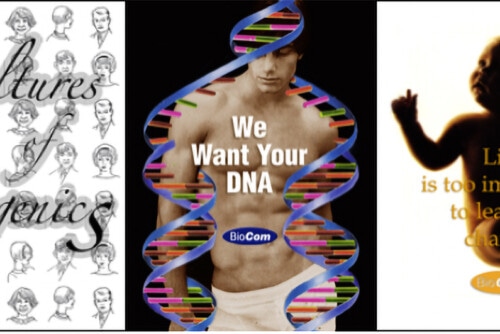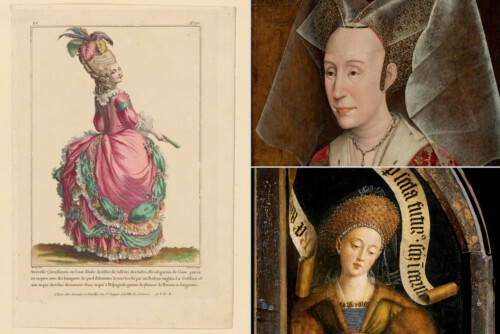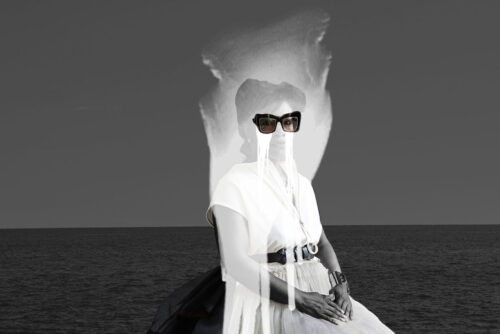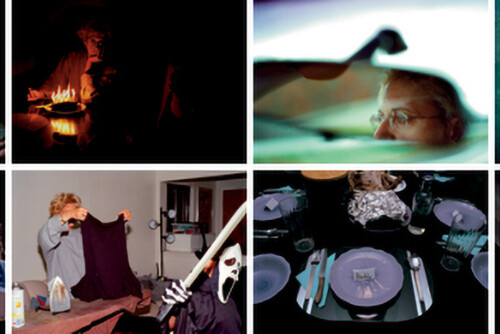Queering Kinship
Several recent collections have attempted to explore some of the complex ways in which kinship building happens outside the norm, including One Big Happy Family: 18 Writers Talk about Polyamory, Open Adoption, Mixed Marriage, Househusbandry, Single Motherhood and Other Realities of Truly Modern Love1 and And Baby Makes More: Known Donors, Queer Parents, and Our Unexpected Families.2 These collections offer critical and diverse contributions to parenting memoir writing—arguably signaling the arrival of a new subgenre of parenting literature that allows issues of the political economy of reproduction to be taken seriously. These collections offer self-reflective critiques of the use of ART and adoption, while simultaneously using them to build alternative kinship structures.3
The collection One Big Happy Family includes the perspective of a heterosexual male sperm donor in a piece recounted by an anonymous author (using the pseudonym Antonio Caya) who gave his semen to a single lesbian friend who later became pregnant. Although Caya gives little time to larger issues of the reproductive economy, his personal reflections on being a “known donor” are both rare and thoughtful. And Baby Makes More includes three essays from gay male donors who help with the creation of queer families. Their contributions to active parenting beyond sperm donation are varied, but the aspect of being a “known donor” is recalled as important to both the men involved and to the mothers who asked them if they might contribute. Their inclusion as gay male sperm donors is also important, with only one sperm bank in the U.S. allowing donations from openly gay men.4
More elusive than the gay male perspective is the transgender perspective, which is also included in And Baby Makes More. Here, Tobi Hill-Meyer recounts the process of deciding to store sperm prior to transitioning, and then reflecting on with whom she might use it or to whom she might donate it. The inclusion of a story from this perspective is important, as transgender people tend to be the most marginalized (or sensationalized, when we think of the recent moral panic over the “pregnant man,” Thomas Beatie5) in discourses around reproductive technologies. A 2006 Mother Jones article on the fertility industry found that Geoffrey Sher, owner of one of the most profitable fertility franchises in the country, the Sher Institute, only turned down a few patients in 24 years of operation, “one being a woman who wanted to harvest her eggs, fertilize them, freeze the embryos, have a sex change, find a woman to marry, and then have his wife carry his babies.” Apparently, such a trajectory fell outside of Sher’s self-professed “no judgments” approach.6)
Although all of the essays recounting the process of sperm donation question the role of biology in parenting to an extent, perhaps unsurprisingly, the essays that most clearly spell out the challenge that society’s biological imperative poses to alternative kinship construction are by academics coming from feminist, critical race, and reproductive rights backgrounds. In And Baby Makes More, Damien Riggs, a lecturer in social work and the editor of the journal Gay and Lesbian Issues and Psychology Review, recounts his experience as both a gay male adoptive co-parent and as a sperm donor. Regarding the latter, Riggs reminds people in his life (friends, curious by-standers, his own mother) that “biology … did not necessarily equal kinship, equal family.” While this is a product of his own experience with the creation of kinship via the non-biological route of adoption, his theoretical training certainly plays a part, evidenced by his statement that:
“I am … aware of the cultural location of my own understanding of biology as a white, middle-class gay man, and that meanings of biology for indigenous communities, for example, may mean very different things when they are connected to sovereignty claims through the state’s requirement in Australia to prove descent. Biology is thus, in my opinion, a set of meanings that are laden with both cultural and personal contexts.”
Others’ culturally and personally contingent understandings of biology, Riggs contends, sometimes impinge upon his own relationship to biology, with expectations, for example, that he is the “real” father of the children conceived with his sperm, and the “adoptive” father of children with whom he feels a strong kinship bond. “Resemblance talk” is summoned again in this context, as Rachel Warburton, a professor of literature and feminist and queer theories, contends. Although acknowledging, like Riggs, that others’ understanding of the importance of biology does not intend to harm her, outsiders’ insistance on using resemblance talk—suggesting that the children she parents with her female partner look “just like” their known sperm donor—”invariably works to erase [her] relationship with [her] sons.” Despite the “threat of invisibility,” Warburton stresses the benefits of a known sperm donor over the reduction of “the donor to a set of predefined, disembodied characteristics,” as she contends happens with anonymous donors. The double-edged nature of using a known donor is also explored by Chloe Brushwood Rose, a professor of education who has also written on queer femininity, as she describes being made to feel “reduced to an incubator” when a mutual friend of the sperm donor (the donor, incidentally, also appears in the book) asks to hold “Bob’s daughter.” Like Warburton, who described her known donor as “kin,” Brushwood Rose asked a “member of [her] chosen family to go ‘biological.'” The use of the terms “kin” and “chosen family” are not accidental—they describe the kinship networks which members of queer communities have built for decades, as an alternative to—and in spite of—legal and political recognition. The importance of these networks are what make “resemblance talk” all the more complex.
In the end, while a celebration of these queer reproductions is definitely in order, I am left a little bit sad by what I didn’t find much of in the narratives from “critical adopters”: a serious accounting for the person’s own privilege. In other words, queers and feminist straight women who use reproductive technologies have generated many insightful critiques of mainstream legal structures and social norms of “family,” and perhaps more importantly have generated new forms of kinship. But the critiques are almost all limited to the ways in which the critic her or himself (and her or his “group”) is marginalized. There’s little attention, so far, to the ways in which reproductive technologies also facilitate privilege, such as the super-elite mode of parenting and ever-greater concentration of resources that might be encouraged by parent-to-child ratios that can exceed 4:1 in some of these families, or the naturalization of race that is achieved through the usually implicit decision to seek racially “similar” donors. It is a lot to ask of people who are already in such a tenuous position legally and socially; the right-wing is still working hard, after all, to associate LGBT people with family decay and child molestation. But it’s worth hoping that the next phase of critical adoptions will go further, looking for ways to approach reproductive technologies as simultaneously tools of survival for marginalized people, and exercises of privilege that should be undertaken with ambivalence and wariness.
- Rebecca Walker, One Big Happy Family: 18 Writers Talk about Polyamory, Open Adoption, Mixed Marriage, Househusbandry, Single Motherhood and Other Realities of Truly Modern Love (New York: Riverhead, 2009). [↩]
- Susan Goldberg and Chloe Brushwood Rose, And Baby Makes More: Known Donors, Queer Parents, and Our Unexpected Families (London, ON: Insomniac Press, 2010). [↩]
- I would also include Rachel Epstein’s Who’s Your Daddy? And Other Writings on Queer Parenting (Toronto: Sumach Press, 2009), as part of this nascent subgenre, although I was not able to get access this book in time to include it in the review. [↩]
- Cited in Daniels and Golden: that bank is Rainbow Flag Health Services. [↩]
- I did not include Thomas Beatie’s autobiography, Labor of Love: The Story of One Man’s Extraordinary Pregnancy (Berkeley, CA: Seal Press, 2008) in this review. Beyond the sensationalized accounts in mainstream media, Beatie’s book provides a personal account of the severe discrimination faced by transgender males in the medical system, and by society towards transgender parents more broadly. [↩]
- Elizabeth Weil, “Breeder Reaction,” Mother Jones July/August (2006 [↩]




